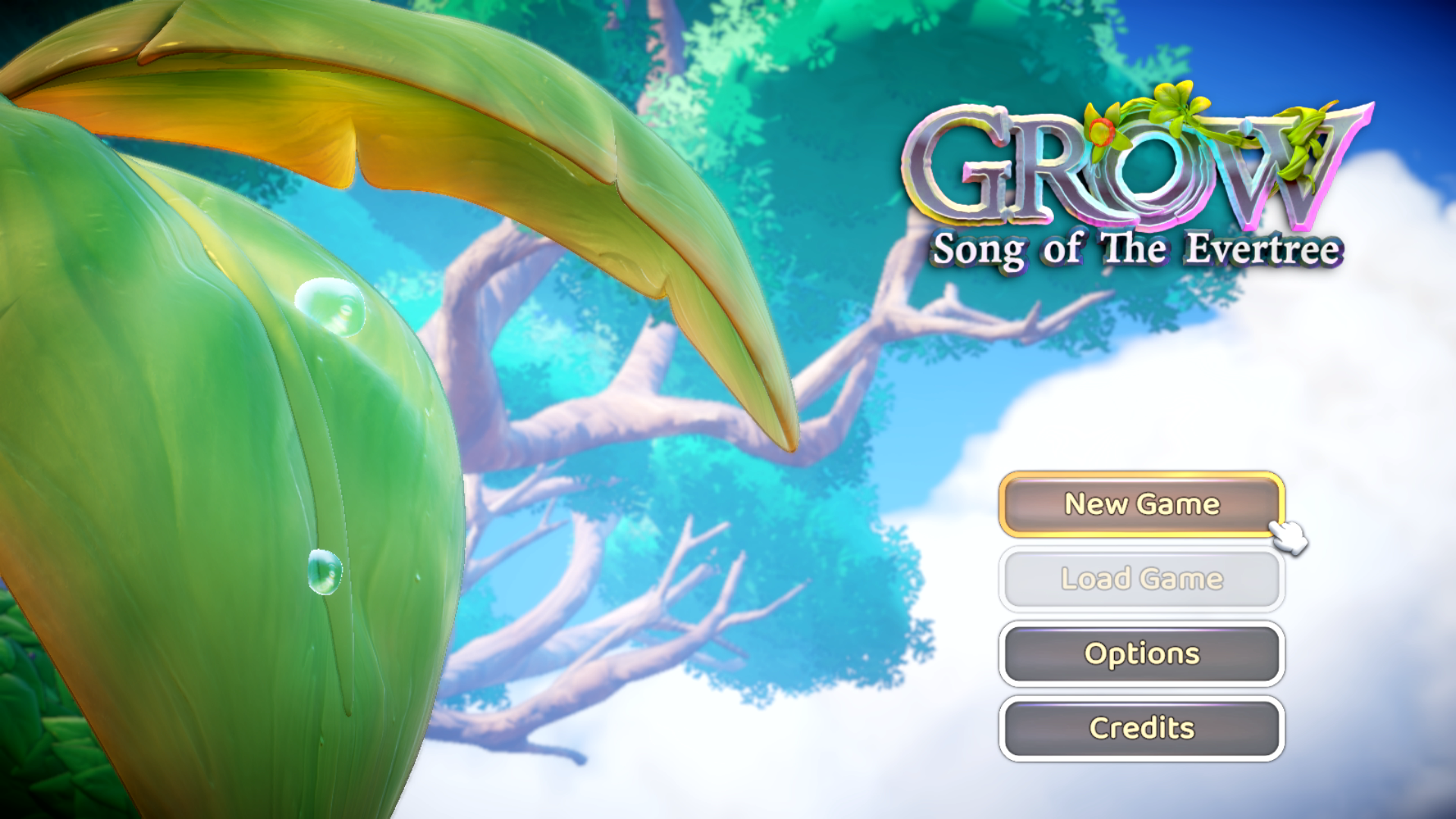Grow: Song of The Evertree
Never Judge A Tree From Its Branches
Grow: Song of The Evertree is an example of a game that you've probably seen before, yet at the same time offers an unexpected experience. It's a world that the player creates while at the same time saving it from the brink of its destruction. I wasn't sure what to expect outside of its premise of a "world simulator," as it looked like any other farm simulator. The developers at Prideful Sloth are a small independent studio based in Australia, with Grow being their second endeavor.
A look at their Twitter page shows that the game itself has a dedicated following, with those who have played the game offering it positive praise. I've played quite a few "farm sim" games to understand the appeal yet accept that they generally aren't my "go-to" titles. Still, with a game being touted as "chill" and "stress-free," as well as "open-world," I couldn't help but see for myself. Will Grow Song of The Evertree sway me in the direction of a simulation fan? Or is this yet another title that misses its mark?

Save The Word By Growing A New One
The story of Grow revolves around the Evertree and how a group of scholars used its resources to live in harmony. A corrupted evil ends up ruining the Evertree and its "Song," effectively turning its world into ruin. There's one alchemist who decides to remain and stand up to the evil while attempting to rebuild the Evertree. That alchemist is, of course, the protagonist, supported by a talkative motherly Book and a fatherly Cauldron. It's standard fairy tale fare and the plot shows itself in several instances to explain why the protagonist is able to perform certain actions. The main bulk of the game is within the gameplay itself.
Before the player embarks on a journey, they have to create their character. The options are fairly limited, on par with what's expected from games like Story of Seasons. There are basic body and hair types, eye and hair colors, and voices to choose from. The most important part of Grow's character creation is in its freedom. I'll say that this is one of the few games to have a "non-binary" option for gender and the dialogue in game reflects this accordingly (Referring to the protagonist as 'they/them') Any game that acknowledges this gets a plus in my book, so hats off to Prideful Sloth.

Solve Puzzles, Pull Weeds, Plant Seeds
As soon as the player is tasked to plant the "World Seed" that would begin the revitalization of the world, a problem needs tending to. A very big horned problem with wings. Before the player can leave the house, they are trapped inside due to falling debris caused by their pet, uh, dragon goat? Nevertheless, this teaches the player how to use their tools, swinging a hammer and ax to clear out the clutter. Moving the player around is like playing other similar 3D action games.
You run, jump, and attack objects with the tools available at the start of the game. The sickle is used to chop hedges while the glove is used to tug at weeds. Once the clutter is cleared, this usually leads to patches of soil, ripe for planting seeds. Upon planting a seed, the player uses the watering can to help the seeds grow. Anyone who has played a farming simulator game knows the song and dance. A difference in Grow is that it seems the player has an infinite supply of seeds and water. I understand they are an alchemist, but I questioned just how many seeds are in the player's bag.

Restore The World Via Songs
The tools are also used to solve puzzles, including a simple one early on that involves pushing blocks with a hammer. Fitting all four blocks in the right spaces will give the player a treasure chest that contains a piece of equipment. "Equipment" in this game are more so clothes that you can outfit your character from a broad range of characterization including eyewear, shirts, and accessories.
Eventually the player will become attuned with the Evertree, giving them the ability to use a part of its "Song." Doing so will accelerate the rate of the crop's growth as well as give the surrounding area some color back. This will also give the players pieces of architecture they can use to customize and build their own environments. It's here that I thought of an early 2000s game known as Dark Cloud, which combined dungeon crawling and town building in a similar manner.

No Combat, Just Vibes
But there are no dungeons to crawl, no monsters to fight, and no hostiles to engage with. At least, during my forty minutes of playing Grow: Song of The Evertree, the only form of conflict I had was pulling out weeds. Sure the weeds may be "evil," but they're no more "evil" than the ones in other similar titles. The lack of micromanagement involving seeds and the amount of water the player has left also shows that it's a game about "vibes." It's a calming experience meant to take at the player's own leisure. Dialogue involving the characters and its flavor text can get humorous, but at the end of the day, it's a game that's stress-free.

It's like how The Sims takes the values of life but turns it into a way to "take the load off" from the player. There's nothing wrong with that in this case. I'm happy that Grow makes these intentions clear without being pretentious. It takes a page out of other game's books like Stardew Valley and turns it into a 3D exploration title. Grow: Song of The Evertree may not be for everyone, but for those who wish to wind down, it's a surprisingly in-depth experience.
Grow: Song of The Evertree is available on PC, Nintendo Switch, PlayStation 4, and Xbox One. A physical version for the Switch will release in March 2022.

